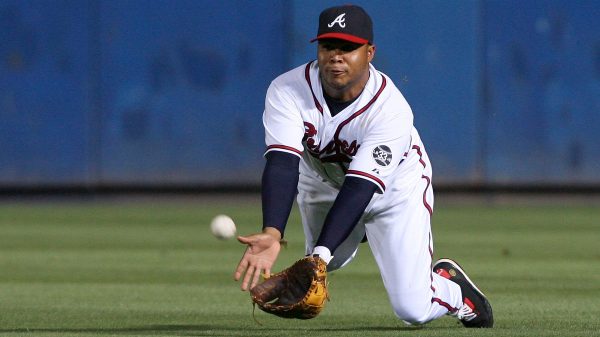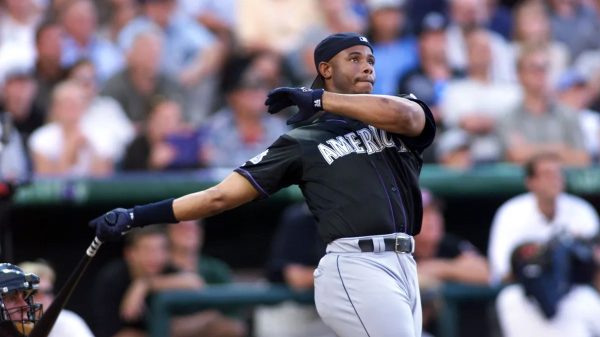UFC 285 featured the long-awaited return of Jon “Bones” Jones, the consensus greatest mixed-martial artist in the young sport’s history, and despite a three-year hiatus from the sport, the MMA GOAT reminded us why he was held in such high esteem with a dominant first-round submission victory over former Interim Heavyweight Champion Cyril Gane.
Jones, who fought as a light-heavyweight for most of his career, successfully moved up a weight class and won the vacant UFC Heavyweight Championship with a literal flawless victory that saw him take zero damage outside of an errant low blow from Gane to start the match. After a brief pause to acknowledge the discomfort of the low blow, Jones quickly took the middle of the octagon, pressured Gane to the side of the cage, and used his superior wrestling to take the talented French kickboxer down and finish him with a guillotine choke mere moments later.
Overlooked in the historical significance of Jones’ victory was the stunning fact that for the first time in nearly twenty years, the UFC Heavyweight Championship was vacant at all, as the coveted title was vacated by former undisputed UFC Heavyweight Champion Francis Ngannou in early 2023 after he and the UFC failed to agree on a contract extension for the decorated Cameroonian champion.
The way those contract negotiations fell apart exposed some uncomfortable truths about both the business of combat sports and the power dynamics involved in the three-way tug of war between labor (ordinary athletes), capital (team/league owners), and talent (star athletes) that is the American way.
High-profile sports contracts are unique among employment contracts because the talent of top athletes is so singularly rare. Most employed people perform jobs that can be done by others for companies that can easily replace them. This creates a natural power imbalance between employees who depend on their jobs for their livelihoods, and companies that simply need to plug a labor hole in their operations.
But the top athletes in sports are a rarefied form of labor we call talent, and their unique talents can give them immense leverage over their employers – think Steve Jobs extracting billions from Apple to return to the company after his absence saw Apple perform miserably against Microsoft in the 90s.
Negotiations between talent and capital in sports usually play out the same way – the talent extracts extraordinary concessions from capital in the form of personal riches (nine-figure guarantees) and privileges (no-trade clauses), the capital secures the uniquely valuable services of the talent (Lebron’s return to the Cavaliers added nearly half a billion dollars to the team’s valuation), and the talent is rewarded so handsomely that they begin their transformation from talent to capital – think Michael Jordan’s evolution from basketball GOAT to billionaire NBA team owner.
This system works for everyone involved as long as the people at the table behave like good capitalists and care only about the people at the table. But strange things happen when someone at the table advocates for people who have traditionally been left out.
Enter Francis Ngannou. Born into poverty in a small Cameroonian village, Ngannou was a child laborer in a sand mine by age 10. He fled war-torn Cameroon as a young man, eventually landing in Paris where he was homeless for a time before meeting established MMA coach Fernand Lopez, who allowed Ngannou to live at his gym while training. Ngannou’s life until that point had been a nightmare, but his talent and potential was so prodigious that this unlikely break was all he needed, and “The Predator” eventually became the UFC Heavyweight Champion of the world.
When Ngannou finally sat down to negotiate a contract extension with the UFC, he began negotiating not just for himself, but for all fighters. His demands were both unusual and remarkably selfless – guaranteed fighter advocates in contract negotiations as well as health insurance, not just for him, but for all fighters in the UFC.
“At this point, health insurance for me is not a problem, but how about the guys at the bottom making $10k+$10k? They can’t really afford that. And I have been there so it’s something that I still carry in my heart” Ngannou said later in an interview.
The UFC was willing to make Francis the highest paid heavyweight in company history, but they weren’t willing to budge at all on any benefits for other fighters. “I felt like I was slapped in the face with money. Like, ‘Take the money and shut up.’ That didn’t work with me,” Ngannou said.
Paying Ngannou a king’s ransom wasn’t a problem for the UFC, but giving up their leverage over other fighters was a dealbreaker, and so no extension was reached, Ngannou vacated the title for free agency, and the UFC moved on to the title fight we saw on Saturday between Jones, a light-heavyweight moving up a weight class, and Ciryl Gane, a man whom Ngannou had already defeated.
The best heavyweight fighter on the planet is now a free agent outside of the UFC, and company President Dana White has already stated that Ngannou would never fight in the UFC again. Instead, the UFC has the heavyweight champion they deserve in Jon Jones, a man who once hit a pregnant woman while driving drunk, then returned to the scene to retrieve cash from his vehicle before fleeing the scene a second time.
Jones is everything that is simultaneously great and wrong with America. He wins at all costs, he intentionally and strategically breaks rules, and he takes steroids he doesn’t even need to make sure he has every advantage in competition. He’s been arrested five separate times, most recently in 2021 for domestic violence on the night of his induction into the UFC Hall of Fame.
And most importantly, he was more than happy to take the deal that Francis turned down, ensuring that he and the UFC would be handsomely rewarded while fighters without his talent and leverage are left without a voice, a seat at the table, or even health insurance.











